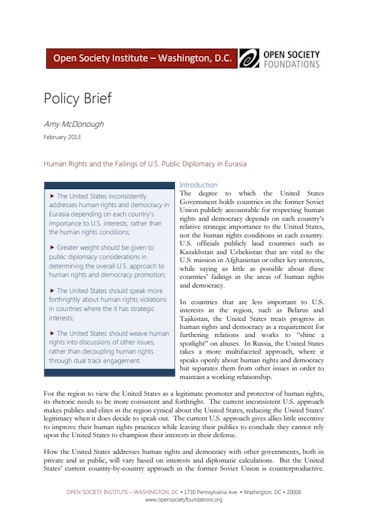The degree to which the United States holds countries in Eurasia publicly accountable for respecting human rights and democracy depends on each country’s relative strategic importance to the United States, not the human rights conditions in each country. This inconsistent approach makes publics and elites in the region cynical about the United States, reducing the United States’ legitimacy when it does decide to speak out. It gives allies little incentive to improve their human rights practices while leaving their publics to conclude they cannot rely upon the United States to actively take a stand in their defense.
This policy brief studies U.S. public diplomacy on the issue of human rights and democracy in relation to Belarus, Kazakhstan, Russia, Tajikistan and Uzbekistan. Through an analysis of U.S. officials’ statements, it concludes that the United States should: give greater weight to public diplomacy considerations in determining its human rights approach; speak more forthrightly about human rights violations in countries where it has strategic interests; and weave human rights into discussions of other issues, rather than decoupling them for political convenience.
Download
-
Human Rights and the Failings of U.S. Public Diplomacy in Eurasia (347.23 Kb pdf file)
Download the 12-page policy brief.
